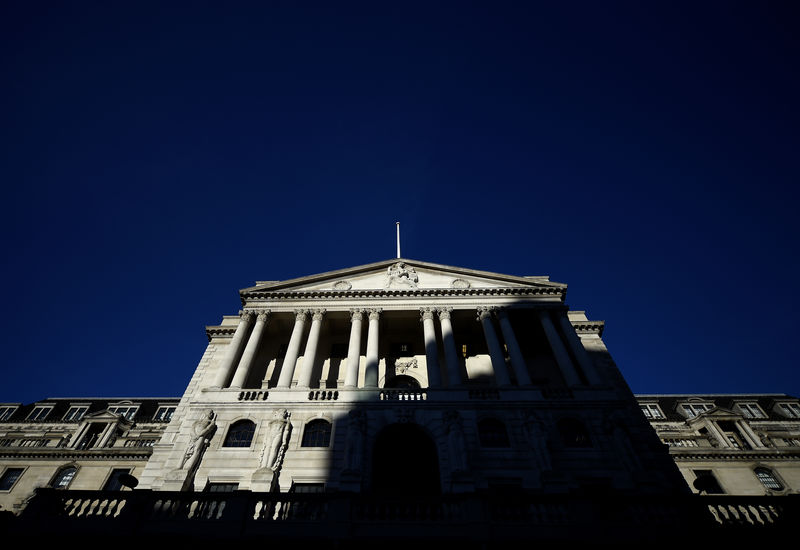By Andy Bruce
LONDON (Reuters) - The Bank of England should wait and see how Brexit unfolds before deciding its next move on interest rates, given that inflation is "reasonably well behaved" and economic growth is modest, rate-setter Michael Saunders said on Wednesday.
If Prime Minister Theresa May secures a deal to ease Britain out of the European Union, borrowing costs would need to rise in a limited and gradual way, but there are other scenarios with different implications for the BoE, Saunders said.
Britain is scheduled to leave the EU on March 29 but May is seeking last-minute concessions from Brussels to secure parliamentary approval and avoid a damaging no-transition exit. May has also raised the possibility of a delay to Brexit
Saunders, who was one of the strongest advocates on the BoE's Monetary Policy Committee for higher interest rates ahead of its two rate hikes in November 2017 and August 2018, struck a cautious tone about the near-term outlook.
His comments chimed with a generally more downbeat stance adopted by the BoE last month, spurred not only by Brexit but also by a slowing global economy.
"The possibility that monetary tightening might be needed in the future does not necessarily mean we need to tighten now," Saunders said in a speech at Imperial College in London.
"Given that at present economic growth is probably not strong enough to create excess demand and inflation is reasonably well behaved, for now it makes sense to wait and to see how Brexit developments unfold."
Britain's economy looks set for its weakest growth in a decade in 2019, according to the BoE's forecasts, and the outlook would be worse if Britain leaves the EU without the cushion of a transition deal.
Saunders, answering questions after his speech, said the BoE's plan to raise rates gradually in the event of a Brexit deal did not mean a "fantastically slow" pace of increases.
He repeated the BoE's consensus view that policy could shift in either direction after a no-deal Brexit and opted not to echo comments of Governor Mark Carney who last week said the central bank would probably give more support to the economy in such a scenario, even if its options were limited.
"I am generally unsure about that," Saunders said. "There are very few, if any, good examples of countries that have gone through a process of reduced openness in the way that a hard Brexit would imply."
Most of Saunders' speech concerned the smaller-than-usual effect of the BoE's last two rate hikes on rates paid by households for loans and received for savings, possibly linked to the ultra-low level of policy rates over the last decade.
"The MPC could allow for this issue by adjusting monetary policy slightly more actively (when the policy rate is low) in order to produce a desired impact on the economy," Saunders said.
He said if the BoE's interest rate was at 1.0 percent, say, then it might be more appropriate to cut rates by more than usual because each 25 basis point change in rates would have relatively less impact on the economy.
"The same point applies if the MPC want to tighten policy (at a low rate level)," Saunders said.
Although it was difficult to be precise about the threshold at which moves in the BoE's interest rate became less effective, Saunders said his rough estimate was somewhere around 2 percent.
